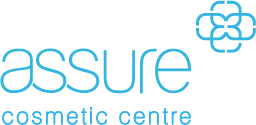Australasian Society of Aesthetic Plastic Surgeons | 19 July 2018
Cosmetic surgery is more popular than ever, but with the rise in popularity has also been a rise in complications. Dr Naveen Somia, Specialist Plastic Surgeon and Vice President of the Australasian Society of Aesthetic Plastic Surgeons explains why.
Millions of dollars each year are said to be spent on non-surgical and surgical cosmetic procedures. These are elective procedures with the aim of enhancing or modifying one’s body for aesthetic purposes.
Once upon a time, cosmetic surgery was somewhat of a secretive thing. If you had a procedure, you didn’t broadcast it to the world. However, things are very different now, with cosmetic surgery in many circles now being just another way for someone to take care of themselves, like eating healthily or exercising.
Why is there a surge in complications?
Unfortunately, with the booming demand, there has also been a boom in complications. Why is this, when today’s Specialist Plastic Surgeons are highly trained and adhere to more regulations and safety practices than ever before?
It is the lack of regulations that govern the practice of cosmetic surgery.
This becomes apparent when you do a quick Google search using the term ‘cosmetic doctor’ to see the many numbers of doctors who are not surgeons practising invasive surgery.
They perform invasive procedures in less than satisfactory settings, and many of the safety nets that we would expect to have in place for a patient are missing.
It’s actually a terrifying situation.
Most popular surgeries
- Breast augmentation
- Liposuction/Liposculpture
- Rhinoplasty/Nose job
- Abdominoplasty/Tummy tuck
- Buttock augmentation/Brazilian Butt Lift
It’s clear to see from the above list and the cutesy titles they’ve been given by marketers, how people can come to believe these are simple day procedures with little to no downtime. However, nothing is farther from the truth. The de-medicalisation of surgical procedures has trivialised the risks involved and the people most at risk from this situation are the patients. Patients are often led to believe that the procedure they are signing up for is far safer than perhaps it really is.
Most popular non-surgical procedures
- Anti-wrinkle injections
- Dermal fillers
- Chemical peels
- Microdermabrasion
- Laser treatments
Even in the cosmetic injectable space of anti-wrinkle and dermal filler injection, the deliberate lowering of the safety standards is putting thousands of people at risk from serious complications.
Just take the example of dermal fillers. It sounds harmless enough, you can get it done when you pick up some bread and milk at your local shopping centre. However, if injected into one of the five high-risk areas in the face, a patient can suffer blindness, stroke and skin death (skin necrosis) almost instantly. Other complications include infection and complications related to infection. Patients can experience a foreign body granuloma, hypersensitivity, painful lumps and bio fill formation resulting in chronic (long-term) infection and irritation. Skin discolouration and pigmentation, numbness and hypersensitivity due to nerve irritation. It doesn’t sound so harmless now does it? In untrained hands, even an innocent dermal filler can turn deadly.
The risk
While the legislation varies from State to State, most patients would be surprised to learn that a practitioner does not need any formal qualifications or training to purchase and start using a laser machine. That’s a high powered laser beam being used on patients that can cause serious burns in the hands of someone who could have picked up the machine on Gumtree.
Anti-wrinkle neurotoxin and dermal fillers are Schedule 4 Drugs that are prescription only and hence these must be performed under a doctor’s supervision.
It is ironic that you cannot buy codeine without a doctor’s consultation and a prescription but you can get Schedule 4 drugs such as dermal fillers injected into high-risk areas without consulting a doctor.
We strongly encourage people to do their research to ensure the provider is licensed to perform the procedure, is appropriately qualified, trained, and the procedure is done in a safe and licensed setting. And that the operator has the right insurances in place, should something go wrong. Sadly its become a case of ‘buyers beware’ and unless the Government introduces strong regulations that are enforced, we will continue to see the rise of complications.
Assure Cosmetic Centre differs from a beautician or day spa in that we are owned and operated by a team of Specialist Plastic Surgeons. Under supervision by our doctors, Assure’s experienced cosmetic nurses provide professional consultations addressing a variety of medical and cosmetic concerns of the face and body.
Click here to read more about why you should always choose a Specialist Plastic Surgeon to perform any type of cosmetic surgery. To discuss your surgical options with one of our Specialist Plastic Surgeons, click here.
Click here to read the Australian Government Therapeutic Goods Administration’s (TGA) advice on things to consider before undergoing procedures involving dermal fillers.
Return to News & Surgeon Blog

